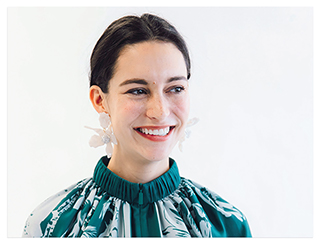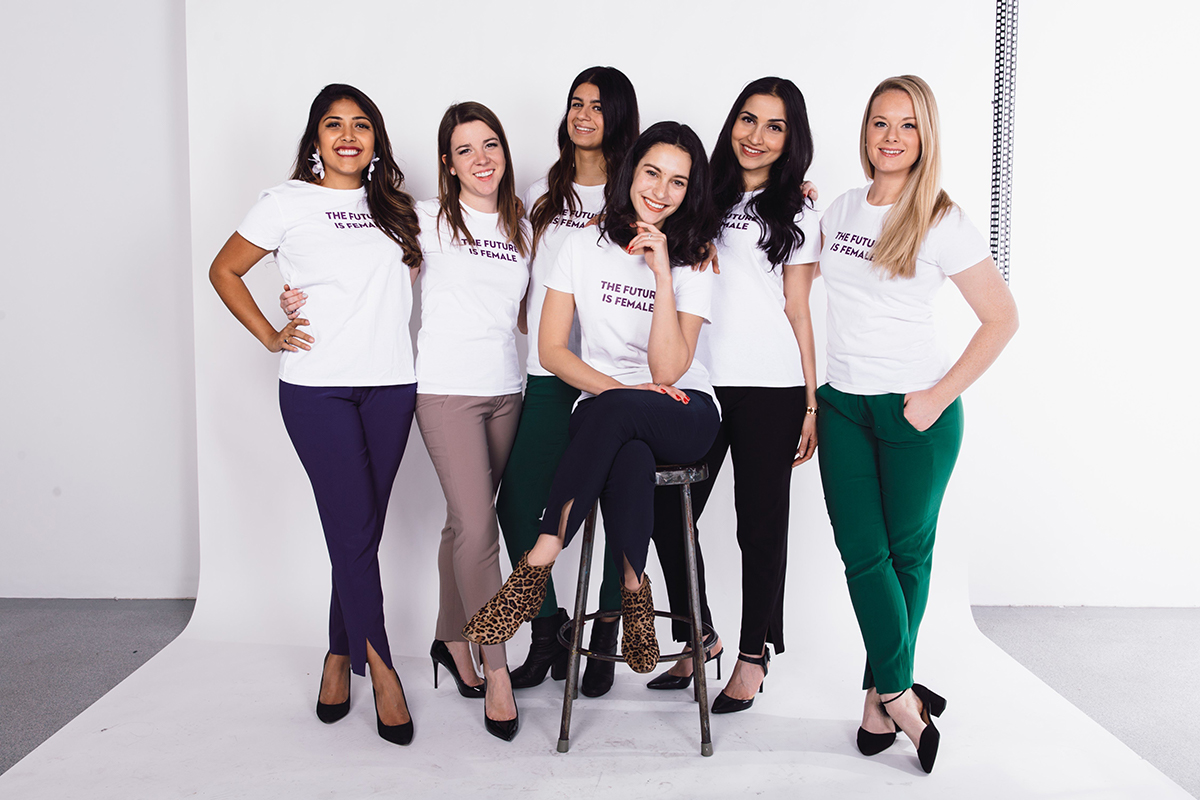There’s a special kind of confidence that can accompany dressing up for work. But when it comes to women’s professional attire, the selection is often uncomfortable, drab and unexciting. Still, it’s undeniable that the days of shoulder pads and oversized blazers—as unforgettable as they were—are drawing to a close. And for Melina Flabiano (MPP ’13), this represents an opportunity to reimagine fashion for the modern-day professional woman.
Flabiano’s own experience has revealed to her how limiting women’s workwear can be. After graduating from Batten, she landed a position at Mckinsey & Company, a man- agement consulting firm with a global reach. “I traveled a lot for work and had to spend significant money and time dry-cleaning my clothes,” she says. “And I didn’t even like what I was wearing!”
Out of her frustration came Keaton, a new women’s clothing start-up. While pursuing her M.B.A at The Wharton School (she will graduate this May), Flabiano conceived of the company and its central ethos—that comfort and style shouldn’t be mutually exclusive.
“I was inspired to start this business because I see a significant shift in how women today approach the working world,” says Flabiano. “There’s a desire to express our personalities with style while being com- fortable during our busy work days.”
Flabiano first entered the fashion world in 2015, when she took a position on the strategy team for the jewelry company PANDORA. “A lifelong fashion lover, I wanted to dive deeper into the operational side of the fashion business,” she says. “I leveraged my Batten skills, such as macroeconomic analy- sis and survey development, to answer ques- tions like: What overseas markets are a good fit for our business? What type of in-store experiences keep customers coming back?”
To explore possible answers to the latter, she piloted a new training program for associates in several PANDORA stores, then com- pared sales with those in a control group of locations to determine the program’s effec- tiveness. Flabiano says the project involved marrying qualitative data from customer focus groups with quantitative measurements concerning things like monetary sales and basket size.
“I came to the Batten School because I wanted to better understand how and why people make decisions,” Flabiano says. “Bat- ten’s curriculum is a great mix of qualitative and quantitative approaches to understand- ing those questions.”
Her experience at Batten also showed her the value of incorporating input from her customer base. This February, Keaton launched with its first product: a thought- fully designed work pant created using in- formation gathered from more than 300 professional women. The Keaton pant is machine washable, doesn’t wrinkle, has large pockets and is designed to be flattering to a range of bodies.
“I believe that the future of retail will be about developing more meaningful products that are able to solve real problems,” says Flabiano. “At Batten, we focused a lot on the importance of listening to constituents when developing policy. Similarly, the core of my business is listening to women and responding to what they need.

